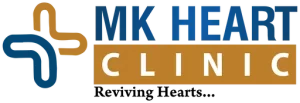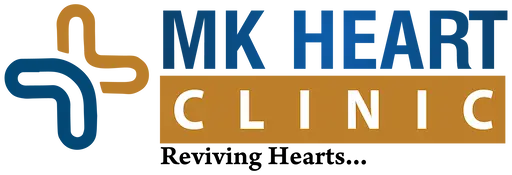Cardiology Hospital in Chennai offers a wide range of services designed to address various heart-related issues. From routine check-ups to complex surgeries, the hospital is equipped to handle all aspects of heart health. Whether you need a routine evaluation or emergency care, you can trust that this hospital provides state-of-the-art facilities and compassionate care.
What is Heart Disease and Stroke?
Heart disease encompasses a range of conditions affecting the heart, including coronary artery disease, heart failure, and arrhythmias. Stroke, often related to heart disease, occurs when blood flow to the brain is interrupted. Both conditions can have serious health implications, making it crucial to seek medical attention promptly.
Symptoms of a Heart Attack
A heart attack occurs when blood flow to the heart muscle is blocked. Recognizing the symptoms early can save lives. Here’s a brief overview:
- Chest Pain or Discomfort: Often described as pressure, squeezing, or fullness in the chest’s center or left side. This pain may persist for several minutes, disappear, then return. It can be intense or mild and requires attention.
- Pain Radiating to Other Areas: Pain or discomfort might extend to the shoulders, neck, jaw, arms (particularly the left arm), or back. This spreading pain can be a key sign of a heart attack and should not be ignored.
- Shortness of Breath: You might experience difficulty breathing deeply, with or without chest discomfort. This sensation can feel like you can’t get enough air, and it can occur suddenly or alongside other symptoms.
- Nausea or Lightheadedness: Nausea, an upset stomach, or dizziness, possibly with sweating, can be signs of a heart attack. These symptoms may accompany chest pain or occur independently and should be taken seriously.
- Unusual Fatigue: Experiencing sudden, extreme tiredness or fatigue can indicate a heart attack. This unusual level of exhaustion, especially if it appears suddenly without a clear cause, might be an important symptom to watch for.
If you experience any of these symptoms, seek emergency medical help immediately.
What Happens During a Heart Attack?
During a heart attack, a blockage in one of the coronary arteries restricts blood flow to a part of the heart muscle. Here’s a brief overview:
- Blockage Formation: Fatty deposits called plaque build up in coronary arteries. If this plaque ruptures, it can form a blood clot, blocking the artery and restricting blood flow to the heart muscle.
- Reduced Blood Flow: The blood clot obstructs the artery, preventing oxygen-rich blood from reaching a part of the heart muscle. This lack of blood flow can cause significant harm to the heart.
- Heart Muscle Damage: When the heart muscle is deprived of oxygen-rich blood, it begins to die. This damage affects the heart’s ability to pump blood effectively.
- Symptoms and Effects: The blocked blood flow results in symptoms like chest pain and shortness of breath. The extent of muscle damage depends on how long the blockage remains untreated.
- Medical Intervention: Quick medical treatment is crucial. Procedures like clot removal or medications restore blood flow, reduce damage, and improve recovery chances for the affected heart muscle.
Different Types of Cardiovascular Diseases
Cardiovascular diseases encompass a range of conditions affecting the heart and blood vessels. Here’s a brief overview:
- Coronary Artery Disease (CAD): This occurs when plaque builds up in the coronary arteries, reducing blood flow to the heart muscle, which can lead to chest pain or heart attacks.
- Heart Failure: A condition where the heart cannot pump blood effectively, leading to symptoms like shortness of breath, fatigue, and fluid buildup in the lungs or other parts of the body.
- Arrhythmias: Irregular heartbeats that can be too fast, too slow, or erratic. They affect the heart’s ability to pump blood efficiently and can cause dizziness or palpitations.
- Valvular Heart Disease: This involves damage to or abnormalities in the heart valves, which can disrupt normal blood flow through the heart and lead to symptoms such as shortness of breath or swelling.
- Peripheral Artery Disease (PAD): This occurs when the arteries supplying blood to the limbs become narrowed or blocked, causing pain or cramping in the legs and affecting mobility.
Each type requires specific diagnostic and treatment approaches, tailored to the patient’s needs.
Cardiac Emergencies
Cardiac emergencies require immediate medical attention to prevent serious outcomes. Here’s a brief overview:
- Heart Attack: Occurs when blood flow to a part of the heart muscle is blocked, causing chest pain, shortness of breath, and potential damage to the heart muscle.
- Cardiac Arrest: A sudden loss of heart function, where the heart stops beating effectively. This leads to loss of consciousness and requires immediate CPR and defibrillation to restore normal heart rhythm.
- Severe Angina: Intense chest pain or discomfort that doesn’t go away with rest or medication. It may indicate worsening coronary artery disease and needs prompt evaluation.
- Arrhythmias: Severe irregular heartbeats can lead to symptoms like dizziness or fainting. Some arrhythmias, such as ventricular tachycardia or fibrillation, can be life-threatening and need urgent treatment.
- Heart Failure Crisis: Sudden worsening of heart failure symptoms, such as severe shortness of breath, fluid buildup, or extreme fatigue, requires immediate medical intervention to manage the condition and prevent complications.
Treatments Provided by Cardiology Hospitals
Cardiology hospitals offer a range of treatments designed to manage and improve heart health. Here’s a brief overview:
Diagnostic Services:
- Electrocardiogram (ECG): Records the heart’s electrical activity, detecting irregularities in heartbeats. Electrodes placed on the skin measure electrical impulses, producing a trace that helps diagnose conditions like arrhythmias, heart attacks, and other heart diseases.
- Echocardiogram: Uses ultrasound waves to create detailed images of the heart’s structure and function. This non-invasive test helps assess heart valves, chambers, and blood flow, aiding in diagnosing heart conditions like heart failure and valve disease.
- Stress Testing: Evaluates how well the heart performs under physical exertion, typically using a treadmill or exercise bike. It monitors heart rate, rhythm, and blood pressure to identify issues like reduced blood flow, arrhythmias, or overall heart function problems.
Medical Management:
- Medications:Heart conditions include drugs to manage blood pressure, cholesterol, and prevent clots. Common types are antihypertensives, statins, and antiplatelets. These help control risk factors, reduce symptoms, and prevent heart attacks or strokes.
- Emergency Care: Addresses acute heart issues like heart attacks and severe arrhythmias. It involves rapid treatment such as administering clot-busting drugs, performing emergency angioplasty, or providing advanced life support to stabilize and save the patient’s life.
Interventional Procedures:
- Angioplasty and Stenting: Involves using a balloon to widen blocked arteries, improving blood flow. A stent, a small mesh tube, is often placed to keep the artery open. This procedure treats coronary artery disease and reduces symptoms like chest pain.
- Coronary Artery Bypass Grafting (CABG): Surgical procedure where a healthy artery or vein is used to bypass blocked coronary arteries. This restores blood flow to the heart muscle, improving symptoms and reducing the risk of heart attacks.
Cardiac Rehabilitation:
- Rehabilitation Programs:Offer structured support after heart events, including supervised exercise, dietary advice, and lifestyle changes. These programs help improve cardiovascular health, enhance recovery, and prevent future heart issues by promoting overall well-being and heart-healthy habits.
Advanced Therapies:
- Implantable Devices: Such as pacemakers and defibrillators, regulate heart rhythms by delivering electrical impulses. Pacemakers correct slow heart rates, while defibrillators treat dangerous arrhythmias. These devices help manage serious heart conditions and maintain normal heart function.
- Heart Valve Procedures: Involve repairing or replacing damaged valves to restore proper blood flow. Techniques include surgical valve repair, valve replacement with prosthetic valves, or minimally invasive methods. These procedures improve heart function and alleviate symptoms of valve disease.
Preventive Care:
- Risk Assessment: Identifies factors like high blood pressure, diabetes, and high cholesterol that increase heart disease risk. Through tests and evaluations, it helps determine individual risk levels, enabling targeted prevention strategies and early intervention to reduce heart disease chances.
- Lifestyle Counseling: Provides guidance on healthy habits, such as balanced diet, regular exercise, and stress management. It helps individuals adopt heart-healthy behaviors, improve overall well-being, and prevent cardiovascular issues by making sustainable lifestyle changes.
Follow-Up and Monitoring:
- Routine Check-Ups: Involve regular visits to monitor heart health, assess treatment effectiveness, and detect any new issues early. These appointments ensure ongoing management of heart conditions, help adjust therapies, and provide continuous support for maintaining cardiovascular health.
- Ongoing Tests: Such as follow-up ECGs and blood tests, track heart health over time. These evaluations monitor treatment progress, detect complications early, and ensure effective management of cardiovascular conditions, helping adjust care plans as needed.
Conclusion
In conclusion, if you need expert heart care, the Cardiology Hospital in Chennai is your go-to destination. With its comprehensive services and highly qualified cardiologists, you can trust that your heart health is in good hands. For more information or to schedule an appointment, contact us today.

